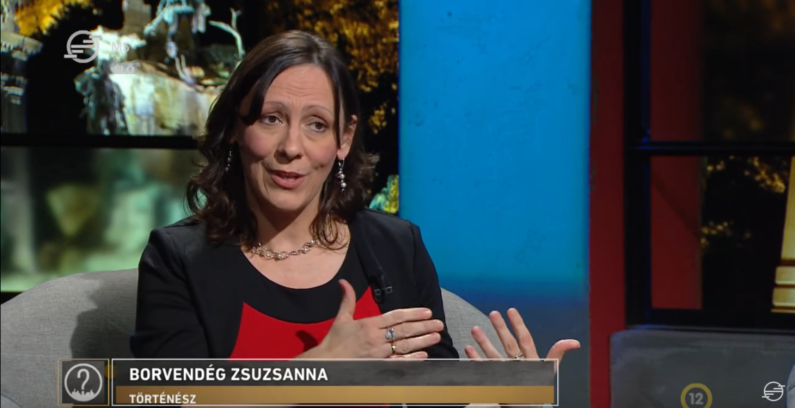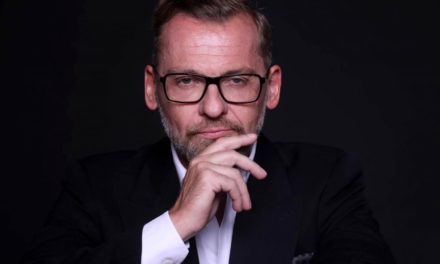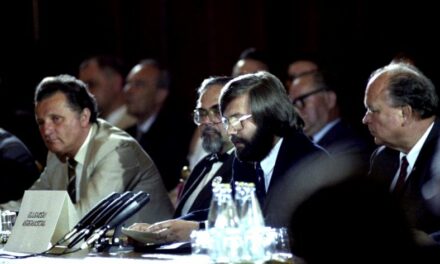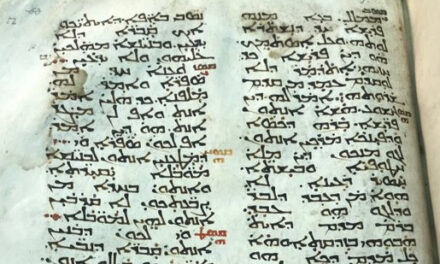The historian Zsuzsanna Borvendég's series was originally published on the PestiSrácok website, but there are certainly those who missed it. But those who haven't read all the parts should also read it again. Knowing the whole picture, can we understand how we got here?
West-Orient was one of the most decisive party companies from the beginning, whose scandal, the six million dollar textile Panama, was full of newspapers in the fall of 1946.
One of the managers of the company was Róbert Hardi Dezső Sulyok in his parliamentary interpellation. Hardi is typically the figure who would have had nothing to earn in the ranks of communists trying to eradicate the capitalist world. He came from a wealthy merchant family, about which he himself testified:
Before 1945, I ran my father's import-export company, which was one of the most profitable companies. Perhaps it is not part of the story, but I will tell you that at the age of twenty-nine I was the tenth largest taxpayer in Hungary at the time, which I was very proud of. Of course, I owed my privileged position primarily to the fact that I was born into a very wealthy family, and as a descendant of the famous Halpern dynasty, I was able to join such a significant company.
In order to feel the weight of this statement, a little addition: Róbert Hardi's annual income in 1942 was 124,202 pengős, and he paid taxes on this amount, while the annual salary of a factory worker did not reach 1,500 pengős, and a school teacher 163 pengős per month. he took home, and the salary of the Hungarian Royal Prime Minister amounted to 2,785 pengs per month. (I borrowed the comparative data Ignác Romsics : History of Hungary in the 20th century.)
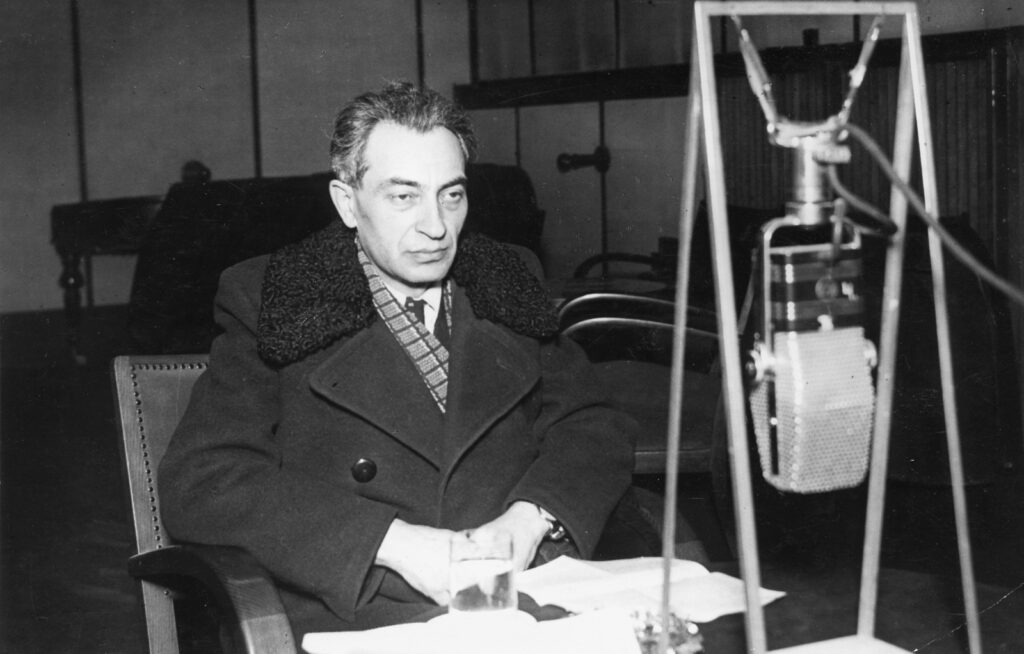
Ernő Gerő makes a statement (photo source: Fortepan)
Róbert Hardi - according to his financial situation - received the best schooling. In the 1930s, he completed postgraduate studies in London as a student at the School of Economics, where, according to his own account, he studied together with Harold Wilson , the later Labor Prime Minister, but also met Winston Churchill .
Presumably due to his outstanding financial education, commercial practice and existing Western relations, he became one of the communists' invulnerable men, who was also Ernő Gerő , an agent of the Soviet secret service, in the early days. According to Hardi's recollections , he was already in contact with Gero in December 1944, when the Provisional National Assembly was convened, and he introduced him to the company of key people involved in the construction of the economic line.
They didn't like him, but they couldn't track him down
From 1945, Hardi collected information as head of department at the Ministry of Trade and Cooperatives. Everything passed through his hands, allowing the communists full insight into the affairs of the ministry.
The party thanked him for his services: even in the Kádár system, Hardi remained within the circle of trust of the impex network, he was never hurt either because of his origin or his political expressions. However, in the eyes of the Orthodox line, it could be a serious thorn in the side, it does not fit into the ideological concept of the Bolshevik worker-peasant power. He was arrested for a few days in December 1956. Allegedly, during the days of the revolution, he made statements hostile to the authorities, but his patrons reached out to him and were able to thwart the intentions of state security even in the period of the harshest retaliation.
However, the suspicions of the internal affairs could not be put to rest: Béla Biszku and his deputy, József Galambos - who later became head of main group III - did everything they could to remove Hardi from the rather delicate field of foreign trade from the point of view of the secret service. But they didn't succeed. At the time of the reprisals, Biszku's hand reached far, but he was unable to squeeze Hardi, all he managed to achieve was that the BM did not issue him a certificate of integrity. This document proved that its owner did not participate in the freedom struggle branded as a counter-revolution by the authorities. Without such a document, it was difficult to find a job, but it was absolutely impossible to hold a senior position.
The exception was Hardi, whose foreign career never wavered for a moment. It seems that the power of the cadres who play a decisive role in the merciless management of the concept procedures has hit a wall among the members of the foreign trade network.
The Hardi stable, the circle of foreign tradesmen, was created
Who were the people who could assert their will even against Biszku during the years of retaliation? In the 1960s, the state security simply called the circle whose members participated in the small-scale frauds and economic abuses that were attributed to foreign traders as the "Hardi stable". It was not only about corruption and black money collected in illegal bank accounts in the West, but also about strategic deals that clearly facilitated the communist takeover in the 1940s, and later represented the introduction of a system based on re-exports.
The role of István Salusinszky
Hardi's circle of contacts included, for example, István Salusinszky , who was the president of Magyar Külkereskedelmi Bank from the mid-sixties. Immediately after the war, Salusinszky came close to the core of foreign trade, he was personally drawn into this circle by László Háy After 1945, he was an official of the Magyar Nemzeti Bank, then in 1947 he moved to Moscow, managing the commercial office there. It was a position to which only the most reliable comrades were placed. After returning home, he worked as a department head at the Ministry of Foreign Trade, then in 1958 he was appointed trade councilor in Rome, from where he returned home in 1963.
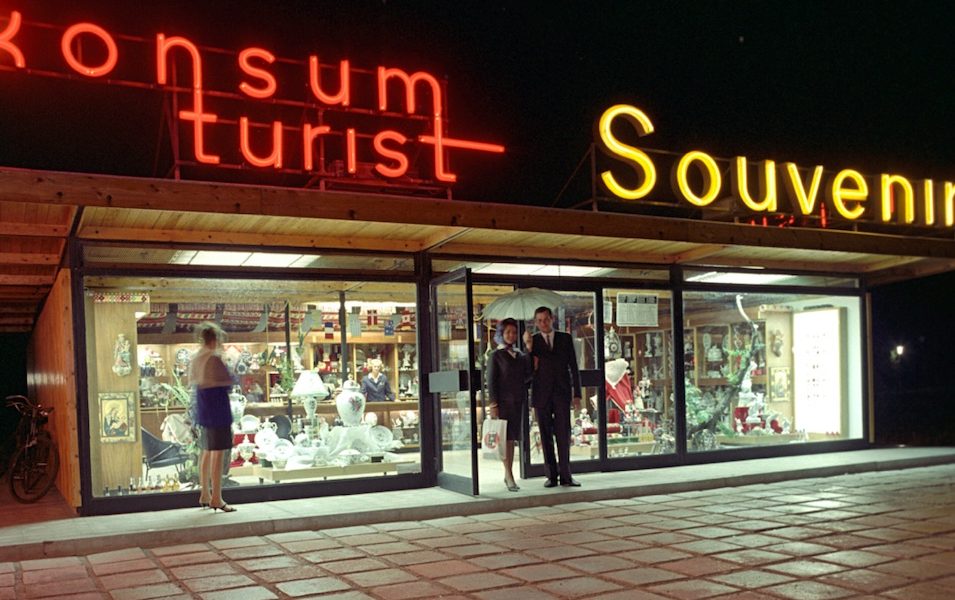
Photo: MTI
In 1964, he was appointed CEO of Külkereskedelmi Bank, a position he held until his retirement in 1980. Salusinszky was the winner of the military intelligence, in Rome he managed the corruption funds called constitutional expenses based on their orders, and he also delivered a significant part of the secret subsidies to the Italian Communist Party, which they supported through their party companies using the well-proven intermediary trade technique.
His relationship with the Italian communists was not only limited to the performance of official duties; the state security materials report that, even after his return home, he cultivated an almost friendly nexus with many Italian left-wing politicians and company managers.
Salusinszky's role in the rise of the foreign financial elite and the birth of the offshore-type network that has been developing since the 1970s is unavoidable. As the head of the MKB, he constantly lobbied for the opportunity for impex companies, i.e. foreign trade companies with a state monopoly, to establish companies in the capitalist West. More on this later.
György Oblath, the "money maker" of the communists
In connection with the liquidation of West-Orient, another name emerges, who was also a decisive figure from the beginning until the mid-eighties: György Oblath . On October 31, 1946, West-Orient ceased to exist - at least under that name. The MKP created several party companies to replace West, including the Magyar Külforgalmi Rt., and with the parallel transformation of the Kollektíva Szövetkezet, the Eastern European Trade Rt. was also created, whose management was taken over by György Oblath in the spring of 1947.
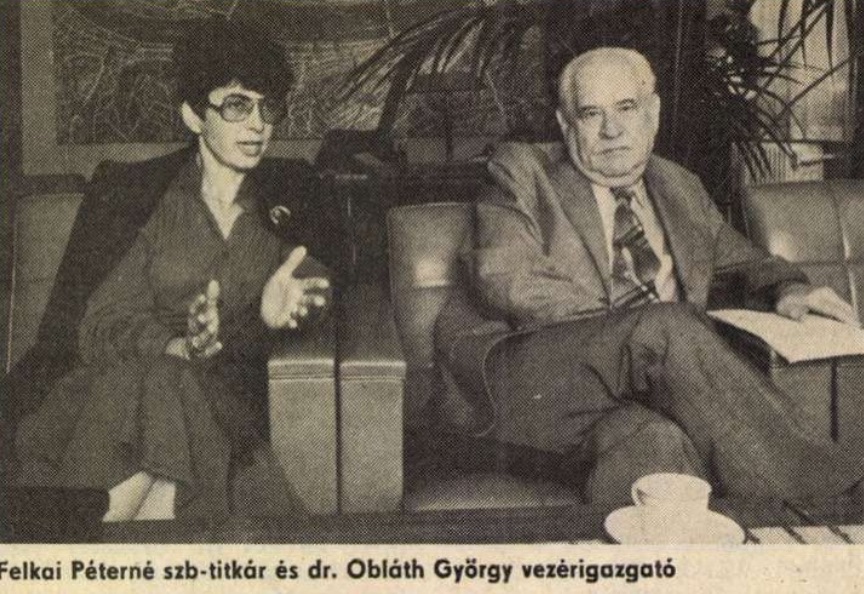
Source: arcanum.hu
Oblath obtained his degree in economics before the end of the war and joined the Communist Party in 1945, during the siege of Budapest. His education qualified him to become one of the "money makers" of the Hungarian Communist Party, and he took a role in company foundings from the very beginning. He himself says this:
...goods were needed under all circumstances, so the official foreign trade partially turned a blind eye to smuggling. At the same time , the emerging foreign trade administration made attempts to channel the smuggling traffic into a legal channel using various means and methods.
Yes, we have already read about this legal bed in connection with West-Orient.
The double life of Oblath, i.e. "Petneházi".
According to American intelligence, Oblath was not simply a loyal party functionary and "money maker", but also made secret purchases for the secret services in Switzerland in the late 1940s: he acquired military-purpose car manufacturing equipment and radio equipment for the Soviet bloc.
Although his state security materials were destroyed during the revolution, it is known from Hungarian sources that from the mid-1950s he certainly helped the political police as a network person, under the pseudonym "Petneházi". Later, he received several assignments abroad, as a trade adviser in India and then in Rome (he was one of Salusinszky's successors in Rome) already in military reconnaissance, i.e. MNVK-2. he worked as a winner, and from the mid-seventies he became the CEO of a joint stock company playing a strategic role, Intercooperation Rt. Among other things, the company was responsible for cooperation with the Siemens company and had a strategic role in evading the embargo.
During the mapping of the initial hard core of the "foreigner mafia", we have thus far been able to meet such persons as László Háy , Zoltán Vas , Ernő Gerő , Róbert Hardi , István Salusinszky and György Oblath ...the expansion of the financial network did not stop at the border, of course. It could not stand still, since the goal was precisely the maintenance and development of economic relations with the West. And if we're talking about finances, how could we leave out Europe's financial stronghold, Switzerland?
Source: PestiSrácok
Author: historian Zsuzsanna Borvendég
(Featured screenshot: YouTube/M5)
(to be continued)

